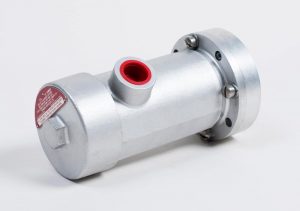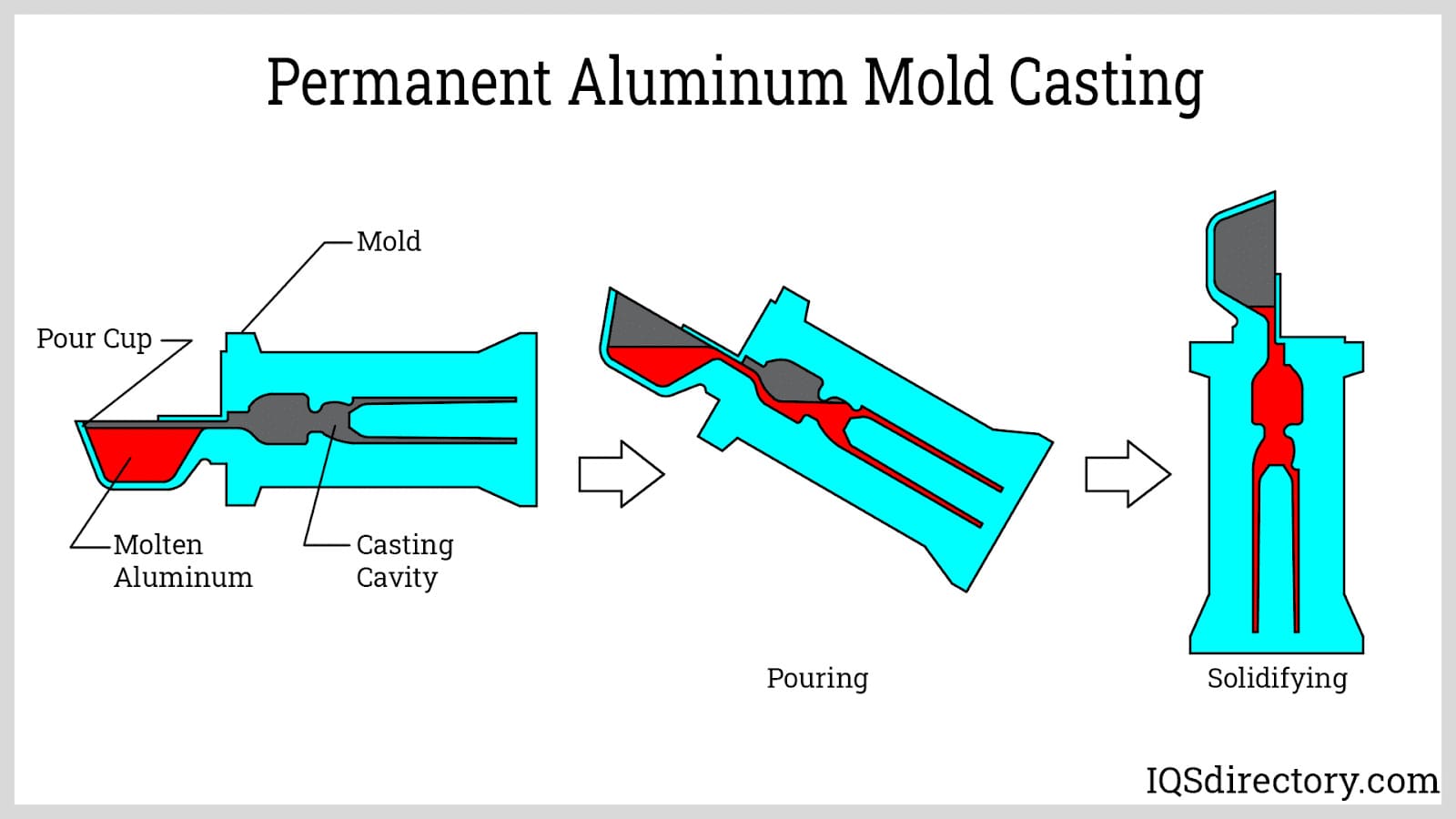Understanding the Function of Aluminum Foundry in Creating High-Quality Steel Products
Aluminum shops are essential in the manufacturing of top notch steel items. They employ various casting methods, such as sand and die spreading, to attain accuracy and toughness. With strenuous quality assurance actions in place, these facilities guarantee that their products fulfill sector standards. As sectors progress, the role of Aluminum shops continues to adjust. This increases inquiries regarding future technologies and sustainability techniques that may redefine their effect.
The Aluminum Casting Refine: Techniques and Innovations
The Aluminum casting process has actually evolved considerably, incorporating various methods and technologies that boost effectiveness and item quality. Commonly, approaches such as sand spreading and pass away spreading were predominant; nonetheless, innovations have actually presented procedures like investment casting and low-pressure die casting. These innovations make it possible for manufacturers to attain intricate layouts and tighter tolerances, minimizing material waste and enhancing total efficiency.
In addition, the integration of computer-aided layout (CAD) and simulation software program permits for even more exact modeling and screening, guaranteeing that possible problems are identified early in the manufacturing cycle. In addition, improvements in alloy solutions cause boosted mechanical properties and rust resistance
These developments not only streamline production but also advertise sustainability by reducing power usage and emissions. As the sector remains to embrace new innovations, the Aluminum spreading procedure stays a vital part in creating top quality metal items that fulfill diverse market demands.
Applications of Aluminum in Various Industries
Aluminum's convenience and desirable properties make it a useful material across various sectors. In the automotive industry, Aluminum is commonly made use of for its light-weight characteristics, adding to boosted fuel efficiency and efficiency. The aerospace sector additionally advantages, as aluminum's high strength-to-weight ratio enhances aircraft style while maintaining safety and security requirements.
In construction, Aluminum is favored for its longevity and resistance to corrosion, making it suitable for window frameworks, roof covering, and structural components. The product packaging market leverages aluminum's non-toxic nature and recyclability, particularly in food and beverage containers, ensuring safety and security and sustainability.
Additionally, the electric market employs Aluminum for its outstanding conductivity in circuitry and transmission lines. The durable goods industry uses Aluminum in products ranging from kitchen tools to electronic devices, emphasizing its versatility. Aluminum plays an important function in enhancing functionality, effectiveness, and sustainability throughout diverse applications.
Advantages of Utilizing Aluminum Over Various Other Metals
While several metals are utilized in numerous applications, Aluminum sticks out as a result of its unique mix of homes that use numerous advantages over various other materials. Its light-weight nature greatly lowers transportation expenses and power consumption, making it ideal for sectors such as vehicle and aerospace. Light weight aluminum's excellent rust resistance improves longevity, prolonging the life of products and minimizing maintenance requirements. Additionally, it displays high thermal and electrical conductivity, making it appropriate for electric and thermal monitoring applications.
The steel's pliability permits for detailed designs and intricate shapes, supplying versatility in making procedures. Light weight aluminum is 100% recyclable without loss of quality, advertising sustainability and lowering environmental influence. click this link These features, combined with its relatively affordable compared to other steels, placement Aluminum as a recommended choice throughout various sectors. Generally, the benefits of Aluminum add to its increasing appeal in the production of top notch metal products

Quality Control Steps in Aluminum Foundries
Quality control steps play a necessary role in the Aluminum Foundry procedure, making sure that the end products fulfill strenuous sector standards and client expectations. These procedures usually begin with product examination, where raw Aluminum is assessed for purity and structure. As soon as the spreading process starts, temperature level control is vital; maintaining optimal molten metal temperatures prevents defects such as porosity and shrinkage.
Additionally, non-destructive screening (NDT) strategies, consisting of ultrasonic and radiographic inspections, are utilized Continue to detect internal problems without harming the castings. Visual evaluations are likewise conducted at different stages to recognize surface area blemishes.
Furthermore, adherence to well-known high quality administration systems, such as ISO requirements, is necessary for keeping uniformity and traceability throughout the manufacturing process. Regular audits and worker training on high quality criteria add to a total culture of excellence, guaranteeing that the products not only exceed yet satisfy client expectations in performance and longevity.
The Future of Aluminum Foundries: Trends and Sustainability
As the Aluminum Foundry industry progresses, arising trends internet and a concentrate on sustainability are reshaping its landscape. Boosting need for durable and light-weight materials in sectors like auto and aerospace drives technology in Aluminum spreading strategies. Advanced technologies, such as expert system and automation, are boosting manufacturing performance and precision while reducing waste.
Sustainability is ending up being an extremely important concern, motivating foundries to execute eco-friendly methods, including reusing Aluminum scrap and using renewable resource sources. The change in the direction of circular economic situation concepts encourages foundries to decrease environmental impact while fulfilling consumer expectations for lasting items.
In addition, regulatory stress are pushing the market towards cleaner procedures, fostering cooperation between manufacturers and environmental companies. As these fads assemble, the future of Aluminum foundries will likely be characterized by a dedication to effectiveness, sustainability, and high quality, ensuring their importance in an open market.
Regularly Asked Questions
What Are the Environmental Influences of Aluminum Foundries?
Light weight aluminum factories add to ecological impacts with power usage, greenhouse gas exhausts, and potential air and water contamination. Furthermore, mining bauxite for Aluminum can bring about habitat devastation and dirt destruction, affecting local ecosystems.

How Do Shops Make Certain Worker Security During Production?
Shops carry out extensive security protocols, consisting of safety devices, ventilation systems, and regular training. They carry out threat analyses and maintain safety and security criteria to minimize threats, ensuring a safer working environment for workers throughout the manufacturing procedure.
What Certifications Should an Aluminum Foundry Have?
An aluminum Foundry need to have certifications such as ISO 9001 for high quality administration, ISO 14001 for ecological administration, and OSHA compliance for safety and security criteria. These accreditations guarantee adherence to sector policies and commitment to quality and safety and security methods.
Just How Does Aluminum Recycling Affect Foundry Operations?
Aluminum recycling substantially improves Foundry operations by providing an economical raw product resource, decreasing energy usage, and lessening ecological effect - Aluminum Foundry. It additionally urges lasting techniques, permitting factories to maintain competitiveness in a swiftly advancing market
What Are Typical Problems in Aluminum Castings?
Common defects in Aluminum castings include porosity, contraction, additions, and surface area blemishes. These concerns can arise from incorrect mold and mildew style, insufficient pouring techniques, or contamination during the melting and casting procedures, influencing total item quality.
